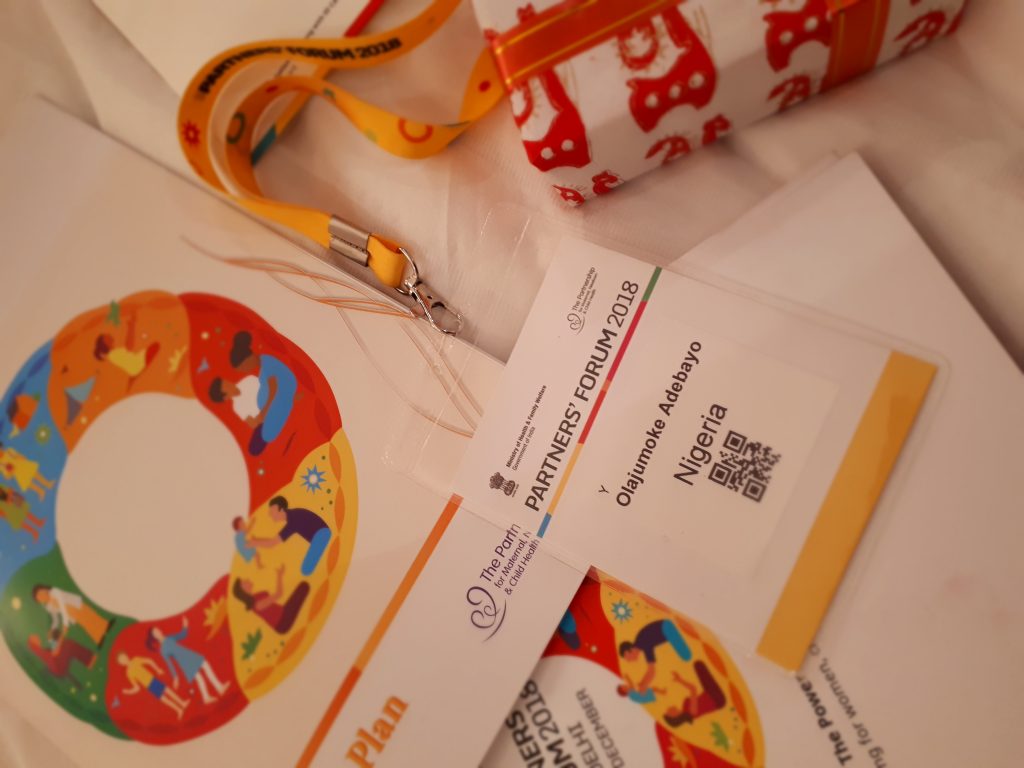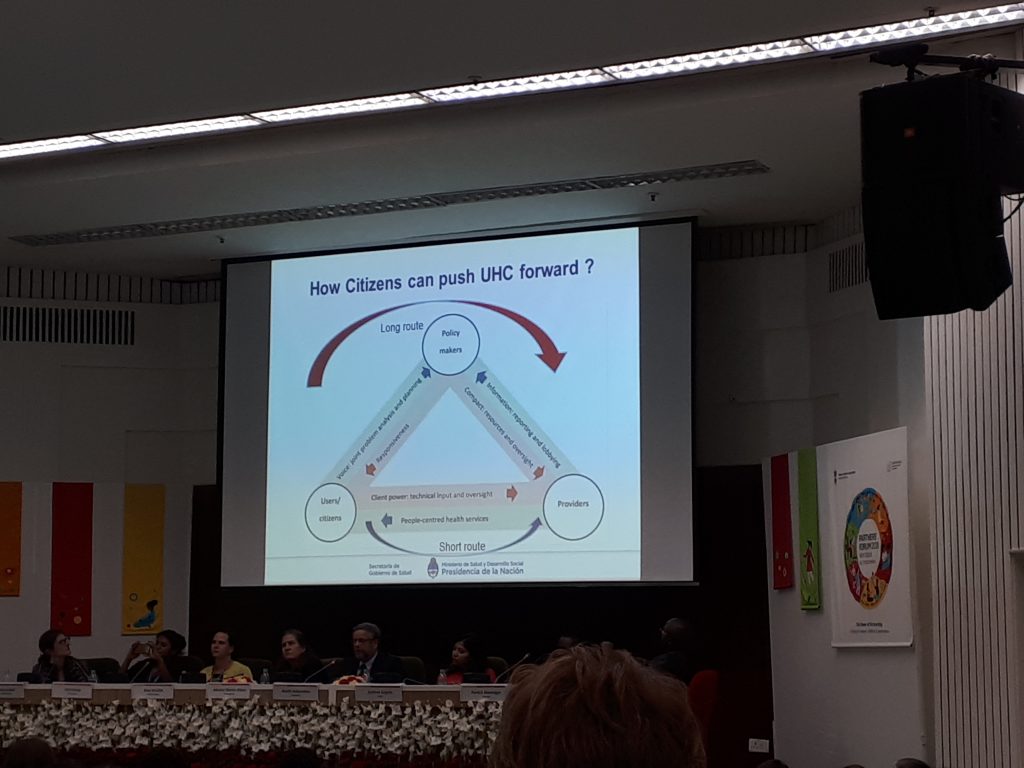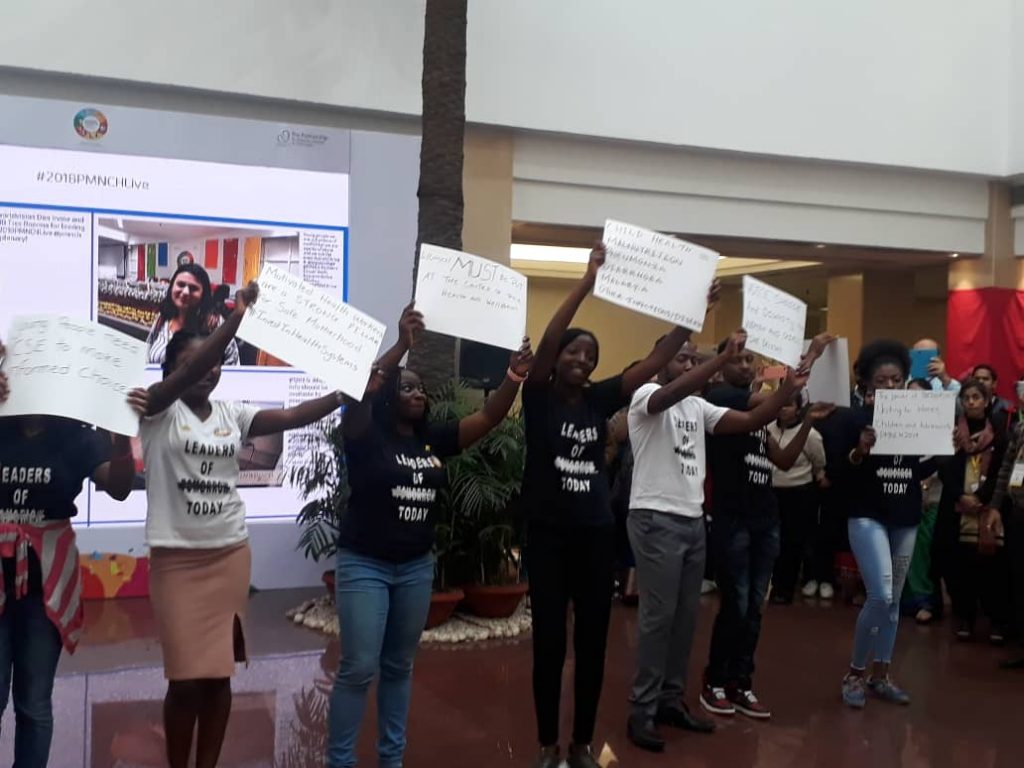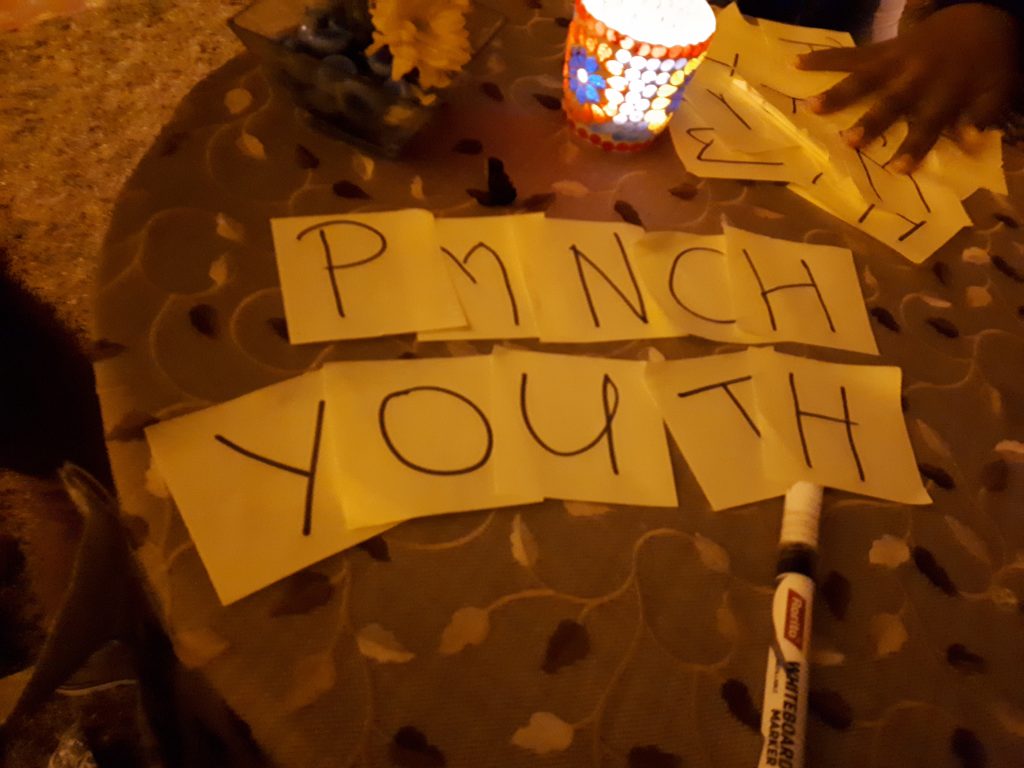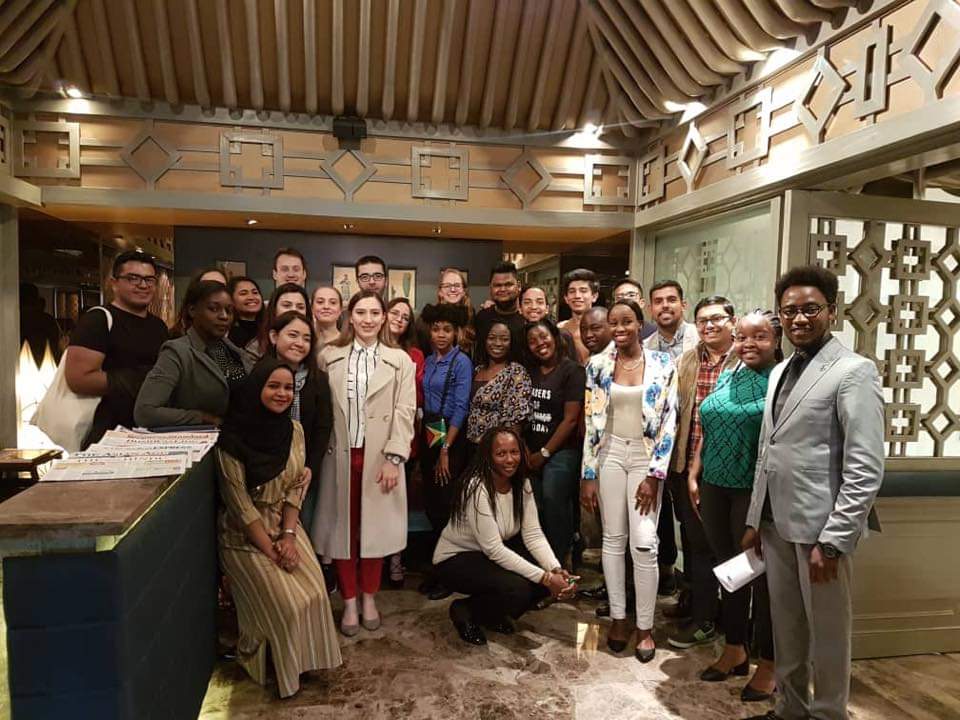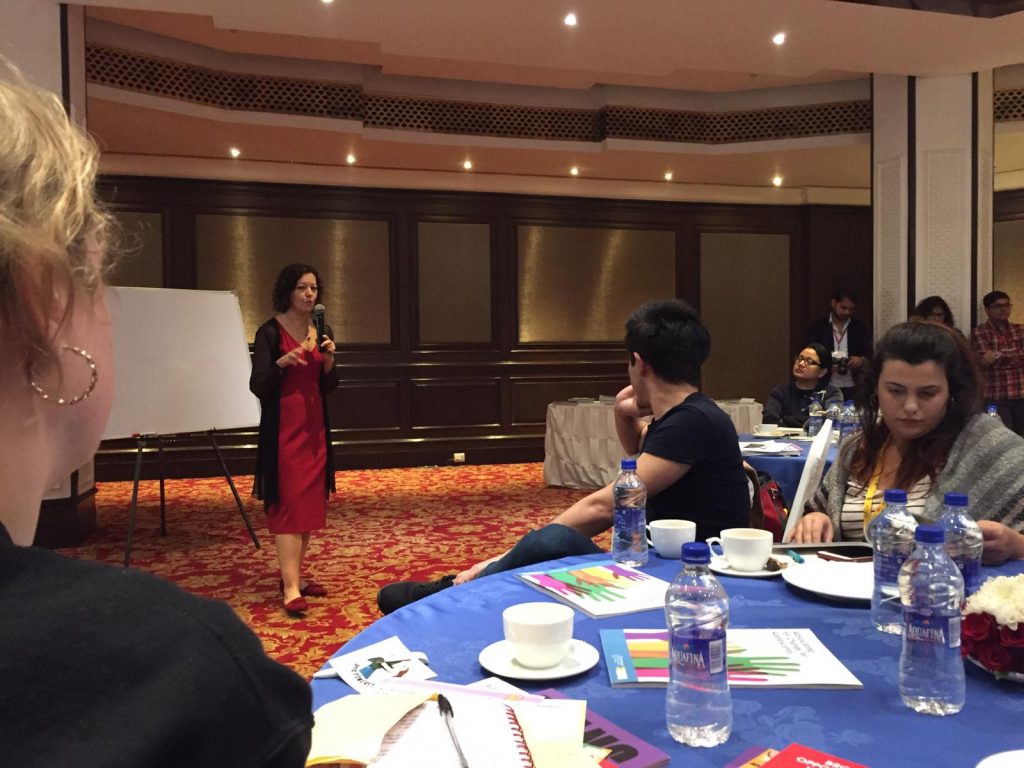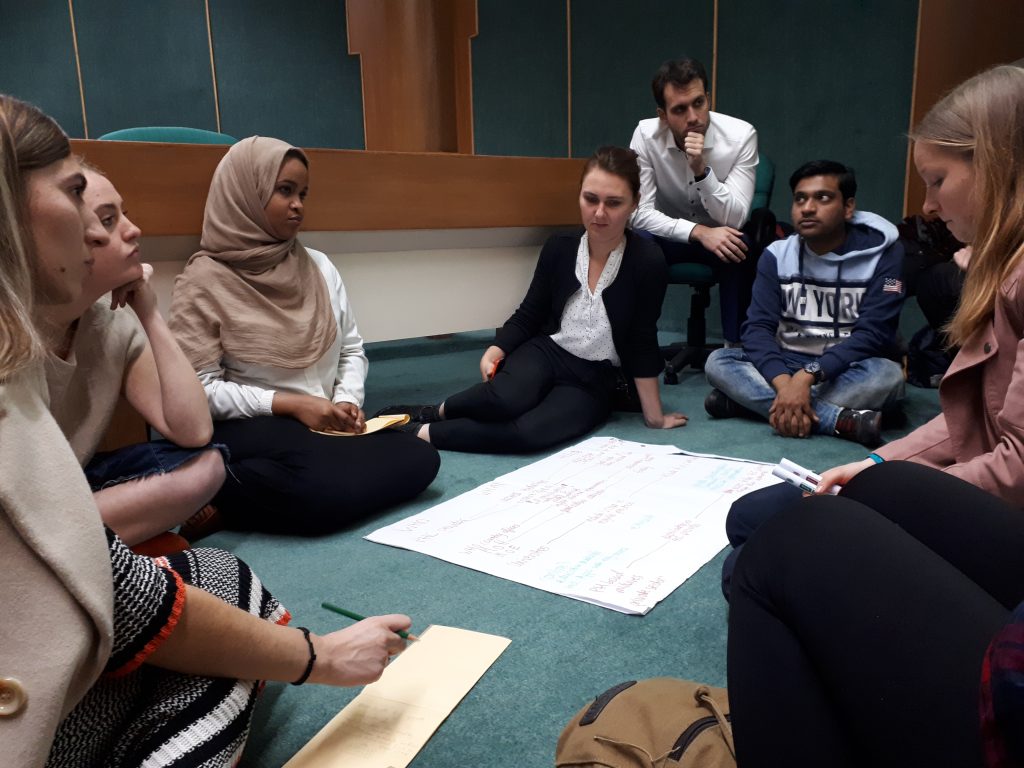Reprolife at Partners’ Forum, New Delhi, 2018.
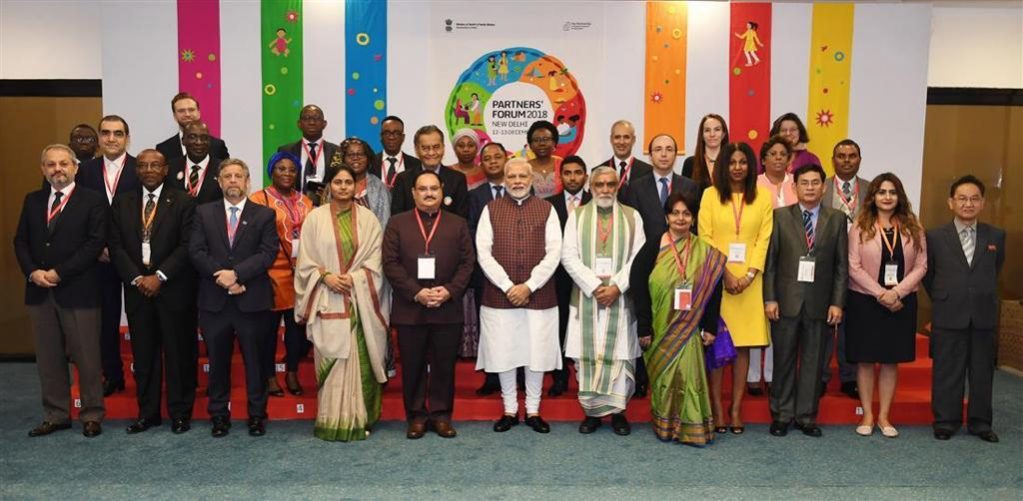
Reprolife Nigeria was present at Partner’s Forum held in New Delhi, India. It was an opportunity for Reprolife to join other young leaders and youth-led organizations to amplify their voices to advocate for better health and well being for women, children and young people.
The PMNCH Partners’ Forum serves as a regular global platform for the renewal of commitment to the mission and purpose of The Partnership, for global high-level advocacy and for achieving broad consensus on the strategy and priorities of The Partnership. Participation at the Forum comes from all constituencies and members of The Partnership.
The Partners’ Forum aims to:
- Consolidate and increase members’ commitment to the objectives of The Partnership and maintain and reinforces high-level political commitment;
- Enrich plans and activities through the active exchange of information and experience;
- Make use of the Forum meeting for advocacy, communications activities and social mobilization at national and global levels;
- Provides a forum for the dissemination of good practice and experience
Events/ Activities
Day One
Take care of yourself! Reaching adolescents and young people through self-care interventions for sexual and reproductive health and rights: WHO dialogue.
This event was organized by WHO to engage young people on the Global consensus on the meaningful engagement of youth. The Global consensus on meaningful youth engagement is a commitment to do more and better for youth participation. Young people were engaged on Guideline for self-care interventions for SRHR.
1) Framework for values and competencies for training health workers to promote self-care.
2) Identifying principles and operational framework for reaching adolescents and young people through self-care Interventions.
3) advocacy and implementation considerations for the guideline on self-care interventions for SRHR
The PMNCH Adolescent youth constituency hosted a welcome dinner for the young people. It was an opportunity for young people to interact and network.
Day Two
The day started with a breakfast meeting with global financing facility. The global financing facility used the PMNCH as an opportunity to interact with young people and get them actively involved in the work being done by the GFF. introductions were made by Sussanah Hurd on the work of GFF and countries were GFF currently operates. Desmond emphasized how young people can engage with the GFF in their different countries and plans were being made to hold training workshops for young people to understand country budgets and how best to demand accountability.
Youth Dialogue hosted by Choice for youths.
The youth dialogue was used to familiarize young people with the work of PMNCHand its Business plan.
The dialogue ended with equipping young people on various skills such as Empathy mapping, How to network, and creating an elevator pitch.
The conference hosted by the Indian Prime minister Narendra Modi, attracted high-level country officials, non-governmental organizations and civil society organizations together, to make commitments to achieve the every woman, every child goal. It lasted for two days. It hosted many important quality conversations through plenary sessions and several concurrent sessions in which participants could choose from.
Key Takeaways
1) There is a need to collaborate and engage in partnerships more, working in silos slows down impact.
2) 10 success cases were shared, from countries where interventions have succeeded, it gives an insight to interventions that have worked, and it challenges other countries to study these interventions and fit into their local context. One of the side events which was The India day, which India celebrated their success was progressive, I believe India and Nigeria have a similar setting and Nigeria can learn from it.
3) Accountability is something that we also need to put more often in practice, there is a need to strengthen accountability systems at all levels. The Global financing facility did a good job at enlightening people on how they operate and where CSO and young people can come in to demand accountability for funds collected by the country for RMNCH interventions.
4) Health workers were not left out especially Midwives, the International Confederation of midwives were present to amplify the works of midwives. One of the successes of India with their maternal mortality was investing in their midwifery services, which is something that needs to be considered in Nigeria. Midwives and nurses are important in achieving Universal health care coverage. I have great recommendations for midwifery care in Nigeria. One of the panelists particularly challenged leaders to begin to consider their midwives as important stakeholders.
5) Lastly, youth engagement was optimally done. Every panel session had a young person involved, young people also brought their A-games, used the opportunity to advocate for young people, women and children and we made sure our voices were heard because we refuse to be silent.
